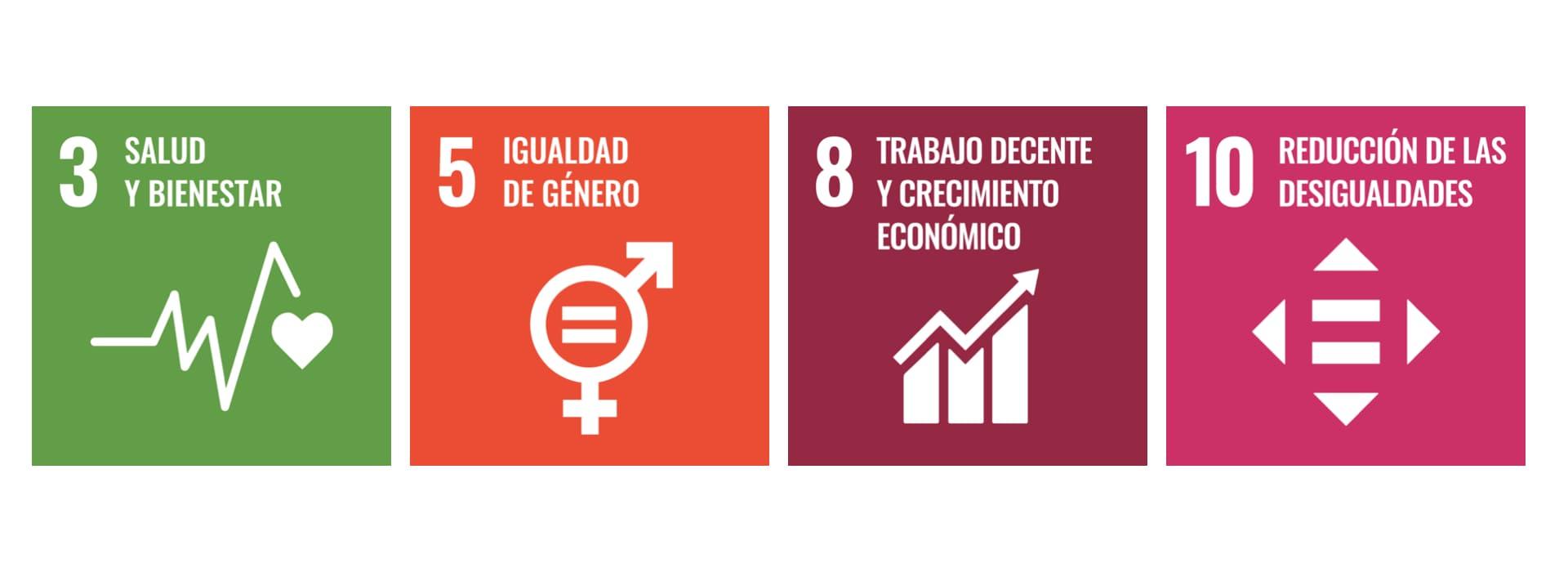
- About UPF-BSM
- Programs
- Faculty and research
- Companies and Organizations
- News & Events
Health of teleworking women particularly affected by digital overconnection
14 Diciembre - 2021
Sílvia Cóppulo
Director of Business Leadership Observatory
Erola Palau Pinyana
Researcher at Operations, Technology & Science Dept.
__
Overconnection, women, telework and health create a risky combination. Teleworking, as it is being applied as a result of the pandemic, generates a digital overconnection that can be harmful to health, especially for women. This is the main conclusion reached by the study we have conducted at the UPF-BSM Business Leadership Observatory and in which we focus and expand our latest research on Digital Disconnection, An Essential Labor Right for Health.
Teleworking reaches its limit in Catalonia
We are currently experiencing a new wave of covid-19 at a time when teleworking may be reaching its peak (if there is no new lockdown). At the beginning of the pandemic, in March 2020, Catalonia had one of the lowest rates of telecommuting (4%) within the European Union (EU), a figure that increased earlier this year, reaching 21.1%, but fell to 17.2% in July. Why is that? Because daily telecommuting is not conducive to creativity, teamwork or a sense of belonging and attachment to the company.
In March 2020, Catalonia had one of the lowest telework rates in the EU (4%), a figure that increased in early 2021, reaching 21.1%
Large corporations such as Google are reforming their workspaces to make them larger, brighter and more attractive in an attempt to return to face-to-face work. Even so, the high number of infections has made it necessary to postpone the compulsory return to face-to-face work. Last spring, the Internet search engine monster set September as the month for a return to the office. A date that had to be postponed until October and again until the beginning of 2022 while the incidence of the new variant of the virus is being assessed.
Women are more stressed and have more digital fatigue
The survey sample (608 people from 95 companies in 40 sectors in Catalonia) is equal, which allows us to conclude that digital connectivity, health and telework are closely related to gender.
Digital fatigue in the workplace due to the pandemic is more prevalent among women: three out of four report feeling stressed
Three out of four women (71.4%) say they feel stressed, compare to 58.1% men. The difference is considerable. Digital fatigue also affects women (60.7%) more than men (46.3%). Even so, both men and women know that digital overconnectivity is harmful. Only 14.0% of women and 18.2% of men consider that the effects on health are not relevant.
Digital overconnectivity generates loneliness in women
In the emotional sphere, women and men have antagonist positions regarding the relationships between digital connectivity and loneliness. Women who telework say in 42.7% (and it is the majority response) that so many hours of digital connection makes them feel lonely. The majority of men (40.3%) say just the opposite.
Women, more committed to the company
The commitment or involvement with the company and the availability of digital connection are related, according to the majority opinions. Women believe this more (46.0%) than men (40%). More women than men are clearer that greater digital connectivity does not mean more productivity in the company, although it is positive for their professional career.
Women are clearer than men that greater digital connectivity does not mean more productivity, but they admit that it is positive for their professional career
It is interesting to relate this position to the fact that our study confirms that it is mostly men who led teams and have greater responsibilities than their female colleagues in work organizations.
However, both women and men respond to almost 95% of all digital communications outside working hours.
10 recommendations
With the aim of contributing and advancing in the knowledge and construction of a more sustainable and healthy society, we suggest the following recommendations:
- Train and raise awareness among the populations in general and workers in particular from the company, administrations, trade unions, universities, etc., of the need to rest and disconnect, both with respect to personal health and well-being and in terms of increasing business efficiency.
- Promote policies aimed at modifying work schedules, taking a further step towards reconciliation and co-responsibility of women and men, with the aim of improving people's well-being and health.
- To train in remote work planning, analyzing the advantages and disadvantages that remote work (teleworking) and face-to-face work entail.
- To promote that companies evaluate their workers for the fulfillment of objectives and not for the fulfillment of their working hours.
- To develop better time management in the professional and personal sphere.
- To increase the perception that it is necessary to be able to carry out a personal and professional life in a conciliated and differentiated way at the same time, especially in the teleworking modality.
- Establish a more assertive and empathetic interpersonal communication between managers and workers.
- As a preventive mesure, training on behavioral patterns (especially the loss of control over time consumption) that become addictive behaviors on the Internet.
- During break periods, set up and automatic email and WhatsApp message indicating unavailability.
- Comply with digital availability agreements at all levels of responsibility in companies and, on the part of workers, claim the right if it is not complied with.
